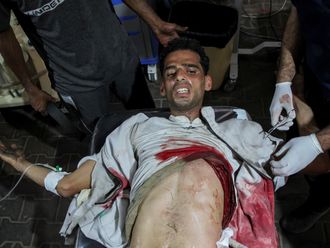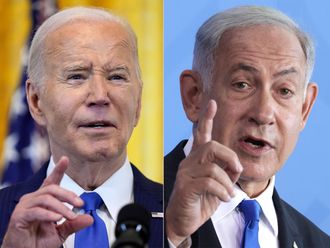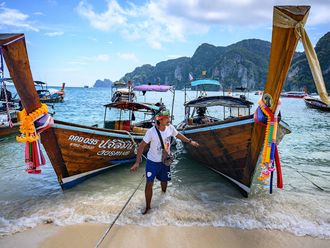Raqqah, Syria: As this remote corner of northeastern Syria fast slides out of government control, many Syrians are bracing for what they fear will be another war, between the relatively moderate fighters who first took up arms against the government and the Islamist extremists who emerged more recently with the muscle and firepower to drive the rebel advance. The capture last month of the city of Raqqah, Syria’s first provincial capital to fall under opposition control, consolidated the gains of an assortment of mostly Islamist-inclined groups across three northeastern provinces. Forces loyal to President Bashar Assad cling to just a tiny number of scattered bases and could be ejected anytime. Yet even as the regime continues to hold out, schisms are emerging among rebel groups over ideology, the shape of a future Syrian state and control of the significant resources concentrated in this long-neglected but crucial corner of the country. “Fighting is unavoidable,” said Abu Mansour, a commander with the rebel Free Syrian Army’s Farouq Brigades, whose men clashed last month with those of the extremist Jabhat Al Nusra movement in the border town of Tal Abiyad, one of several instances in which the tensions have erupted into violence. “If it doesn’t happen today, it will happen tomorrow.” Jabhat Al Nusra, the group designated a terrorist organization by the United States because of its suspected ties to Al Qaida, is among several groups advancing in the region, but it is emerging as the most divisive and the strongest.
On Tuesday, the Al Qaida-affiliated Islamic State of Iraq announced that it had formally merged with Jabhat Al Nusra, with the two groups to be known jointly as the “Islamic State in Iraq and the Levant.” There was no immediate confirmation of the alliance by Jabhat Al Nusra, which has often sought to portray itself as an indigenous Syrian organization and distance itself from the Iraqi organization, whose flag it shares. But the announcement underscored the potentially profound implications for Syria’s future of the fall of this northeastern region to the extremists. The group has seized control of nearly 90 percent of Syria’s oil wells, its granaries and its stores of cotton, and it has set about selling the stocks to raise money, according to Nawaf Al Bashir, a tribal leader. Bashir is a longtime regime opponent whose son was injured this month in a clash between the battalion he commands and Jabhat Al Nusra fighters in another Deir Al Zour village. “They have the Syrian economy in their hands, and they are very strong. You can see their black flags everywhere you go,” he said in an interview in the Turkish border town of Sanliurfa.
Rumours swirl that tribes are hoping to form a “Sahwa,” or Awakening, movement similar to the one that the United States sponsored to quell Al Qaida in Iraq. Much of Hasakah province is inhabited by Kurds, many of whom aspire to independence and whose loyalties are divided, further complicating tensions in the region. But most Syrians say they don’t want a fight, even as they acknowledge the growing divide. “Everyone knows what happened in Iraq, and we want to avoid that,” said Hamid Al Atullah, a spokesman for Al Jabhat Al Jazeera wa Furat, a coalition of rebel battalions formed partly to counter the influence of the radicals. “The Syrian revolution started for democracy, and Jabhat Al Nusra are not fighting for democracy. But they are Syrians, and we don’t want any clash with them,” the spokesman added.











